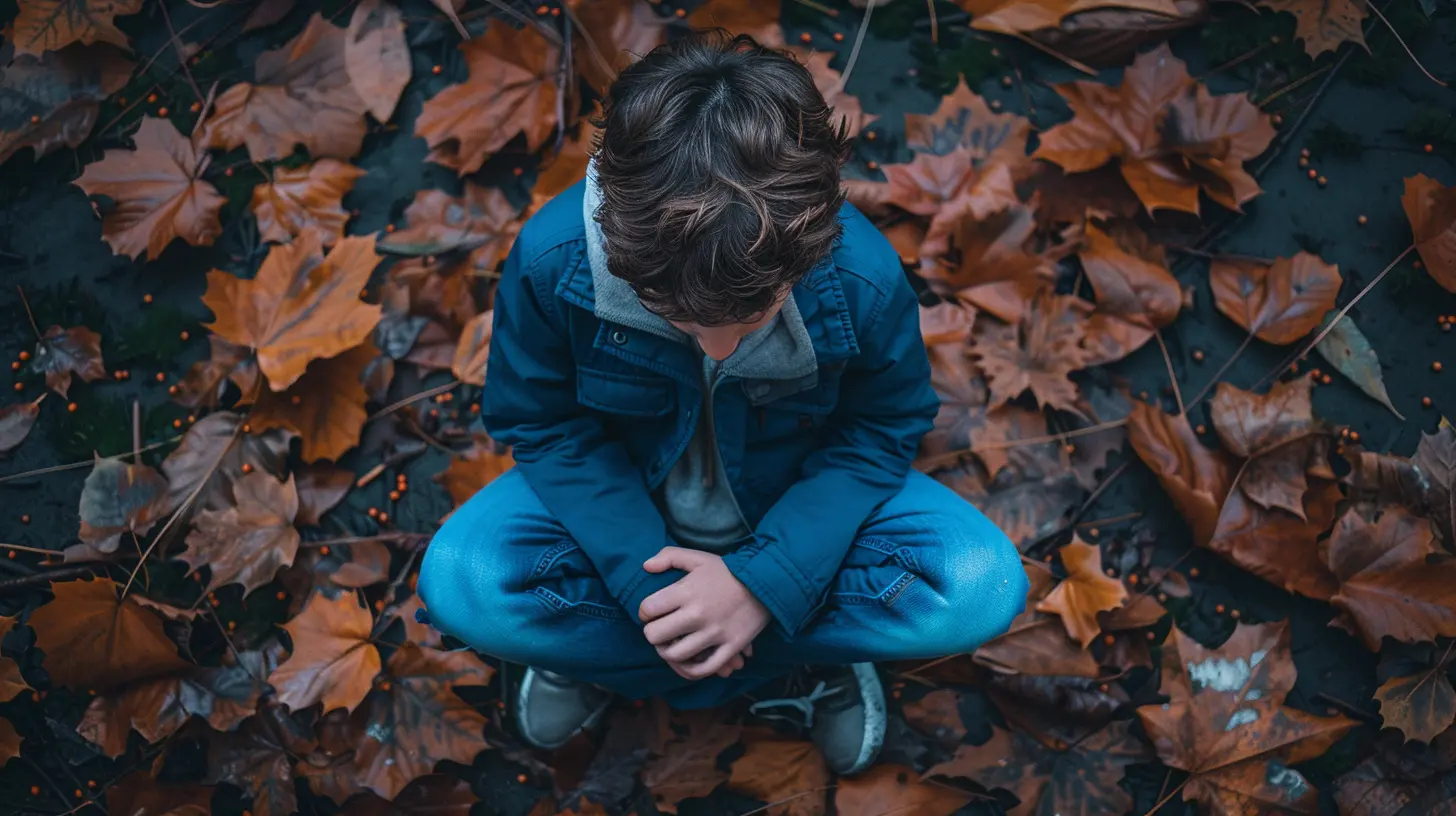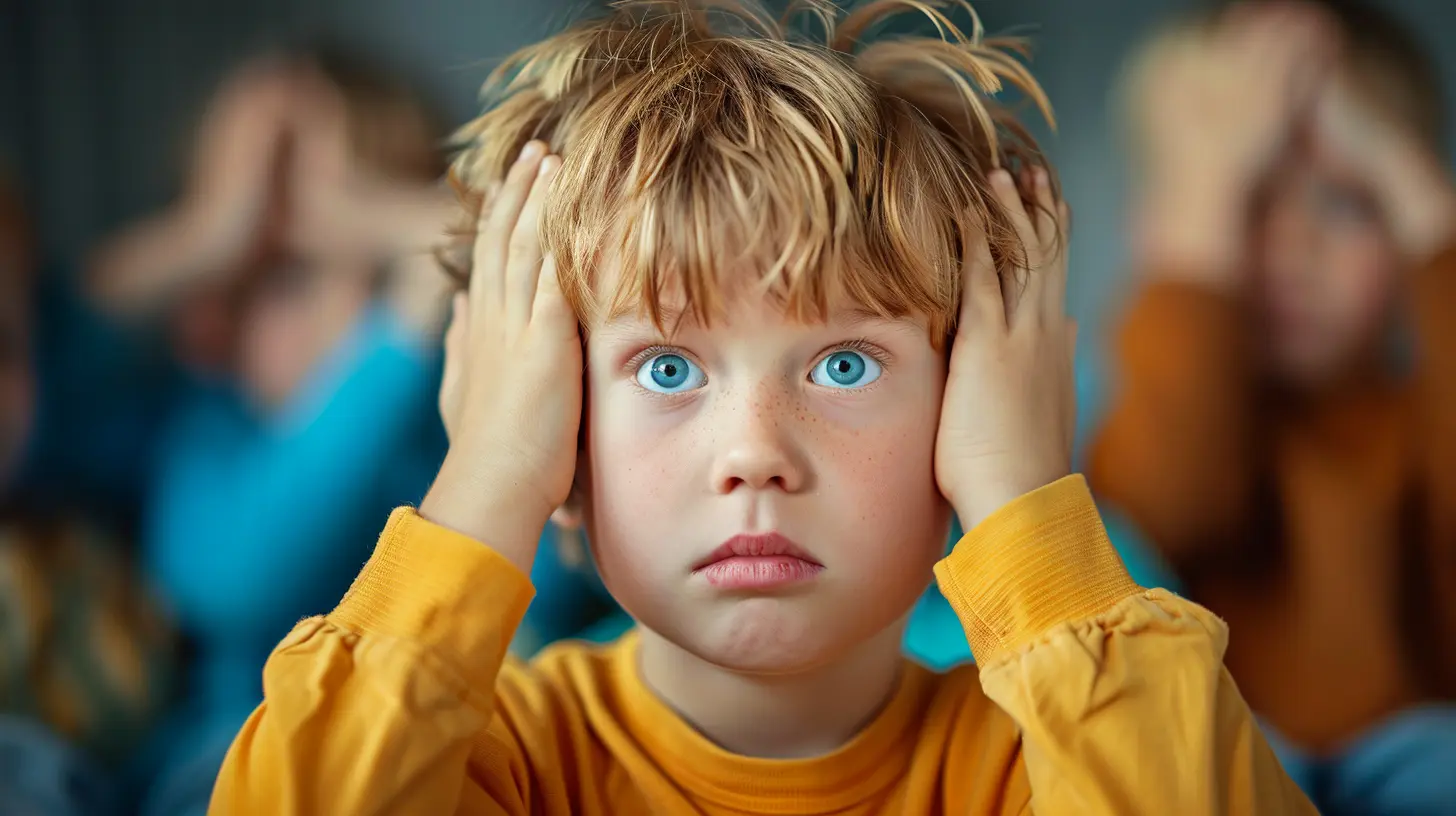1 April 2025
As parents, we know how cranky our kids can get when they miss their naps or don’t sleep well at night. But did you know that sleep is way more than just a “reset button” for the day? Sleep directly impacts your child’s mental health, affecting their mood, ability to focus, emotional regulation, and even their long-term psychological growth. Crazy, right? The importance of sleep goes far beyond physical rest—it’s a cornerstone for your child’s development.
In this post, we’ll break down exactly how sleep affects your child’s mental well-being (and sneak in a few helpful tips along the way). So, grab your coffee and let’s dive in, because trust me, this is crucial stuff every parent needs to know.
Why Sleep Matters So Much for Kids
Think of sleep as your child’s "mental maintenance crew." When they’re snoozing, their brain is hard at work processing emotions, storing memories, and healing from the emotional rollercoaster of the day. While adults function (albeit miserably) on minimal sleep, kids aren’t quite as adaptable. Sleep is their superpower—it’s what fuels their mental, emotional, and physical growth.For young minds, a lack of sleep can be like trying to build a castle on quicksand. Without a solid foundation (a good night's rest), everything—learning, behavior, emotions—gets shaky.
The Science Behind Sleep and Mental Health
Let’s geek out for a second, shall we? During sleep, your child’s brain cycles through different stages, each with its unique benefits.- Deep Sleep (Non-REM Sleep): This is when the brain does the heavy lifting, like repairing tissues, building immunity, and regulating stress hormones such as cortisol. Think of it as the “cleanup crew.”
- REM Sleep (Rapid Eye Movement): During this stage, the brain becomes super active, processing emotions and storing long-term memories. If deep sleep is the cleanup, REM sleep is like reorganizing the messy closet into something functional and beautiful.
When kids don’t get enough sleep, these cycles get interrupted. The result? A cranky, moody child who might struggle with focus, learning, or managing their feelings. Worse, chronic sleep deprivation can lead to issues like anxiety, depression, and behavioral problems. Yikes!
How Poor Sleep Hurts Your Child’s Mental Health
Let’s get into the nitty-gritty. Here’s how sleep deprivation wreaks havoc on your kid’s mental health:1. Mood Swings and Emotional Outbursts
We’ve all been there—your kid misses bedtime, and suddenly, the smallest thing (like giving them a green cup instead of the blue one) sets off a meltdown of epic proportions. Sleep deprivation messes with the brain's prefrontal cortex, which controls emotions and decision-making. The end result? A super-irritable kid who's more likely to have mood swings or tantrums than face challenges calmly.2. Increased Anxiety and Stress
Do you ever notice your child gets more clingy or anxious after a poor night's sleep? That’s because sleep deprivation affects the amygdala—the part of the brain responsible for processing fear and stress. When the amygdala goes into overdrive, kids can feel more stressed or anxious than usual. Over time, this increased stress response can escalate into chronic anxiety.3. Impact on Academic Performance
Think about the last time you pulled an all-nighter (college flashbacks, anyone?). It probably left you feeling like a zombie, right? Now, imagine a kid trying to learn their ABCs or solve math problems with a foggy brain. Lack of sleep can affect concentration, memory, and problem-solving skills—all of which kids need to thrive in school.4. Behavioral Issues
Ever heard of "overtired hyperactivity"? It’s a real thing. Sleep-deprived kids often struggle with impulse control and exhibit hyperactive or defiant behavior. Interestingly, some symptoms of sleep deprivation can mimic ADHD. So, if your child is unusually restless, sleep may be the root cause.5. Risk of Depression
Long-term sleep deprivation is linked to a higher risk of depression in both kids and adults. A consistent lack of sleep messes with the balance of serotonin, the brain chemical that stabilizes mood. Without enough serotonin, kids might feel persistently sad, withdrawn, or irritable.
How Much Sleep Does Your Child Really Need?
Every kid is different, but here are some general guidelines from sleep experts:- Infants (4–12 months): 12–16 hours (including naps)
- Toddlers (1–2 years): 11–14 hours (including naps)
- Preschoolers (3–5 years): 10–13 hours (including naps)
- School-age kids (6–12 years): 9–12 hours
- Teens (13–18 years): 8–10 hours
Think your child is hitting these targets? If not, it’s time to get serious about prioritizing sleep.
Signs Your Child Isn’t Getting Enough Sleep
Sometimes, it’s not obvious that your child is sleep-deprived. Here are some red flags to watch out for:- Difficulty waking up in the morning
- Frequent mood swings or irritability
- Trouble focusing or completing tasks
- Falling asleep in school or during activities
- Hyperactive or impulsive behavior
- Complaining of headaches or stomachaches
If any of these sound familiar, it might be time to review your child’s sleep habits.
Tips for Improving Your Child’s Sleep (and Their Mental Health)
The good news? You can help your child establish better sleep habits with a little effort and consistency. Here’s how:1. Set a Consistent Sleep Schedule
Kids thrive on routine. Aim for the same bedtime and wake-up time every day—even on weekends. Yes, that might mean skipping a late-night movie marathon, but trust me, it’s worth it.2. Create a Relaxing Bedtime Routine
Think baths, bedtime stories, and a little cuddling. A calming ritual helps signal to your child’s brain that it’s time to wind down. Plus, who doesn’t love some extra bonding time?3. Limit Screen Time Before Bed
Blue light from screens can mess with melatonin production, making it harder for your child to fall asleep. Try to shut down screens at least an hour before bedtime.4. Make Their Bedroom Sleep-Friendly
Keep their room cool, dark, and quiet. You might even consider blackout curtains or a white noise machine if your child struggles with light or sound sensitivity.5. Encourage Physical Activity
Kids who run, jump, and play during the day tend to sleep better at night. Just make sure to avoid high-energy activities right before bed.6. Watch Their Diet
Heavy meals, sugary snacks, or caffeine (yes, even in chocolate) close to bedtime can interfere with sleep. Keep after-dinner snacks light and healthy.When to Seek Professional Help
If you’ve tried everything and your child is still struggling to sleep—or if their mental health issues persist—it’s time to call in the experts. A pediatrician or sleep specialist can help identify underlying issues like sleep disorders, anxiety, or even medical conditions affecting sleep.Final Thoughts
Sleep is like the secret ingredient in the recipe for your child’s mental well-being. Without it, even the best behavioral strategies, study plans, or parenting hacks fall flat. As parents, it’s up to us to prioritize sleep—not just for our kids but for the entire family. After all, a well-rested child is a happier, healthier child.So tonight, as you tuck your little one into bed, remember you’re not just helping them recharge for tomorrow—you’re nurturing their mental health for years to come.




Marissa Fuller
Sleep is like magic for kids! A good night’s rest really boosts their happiness.
April 2, 2025 at 4:36 PM